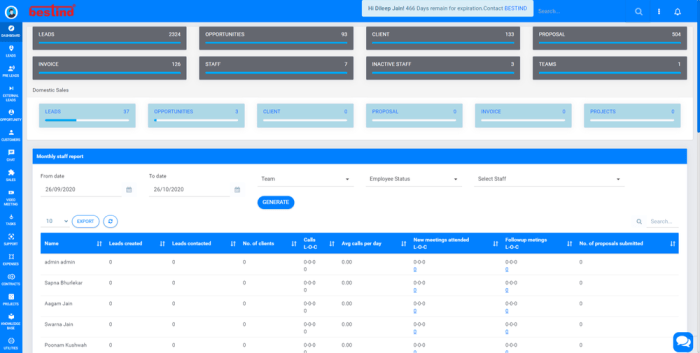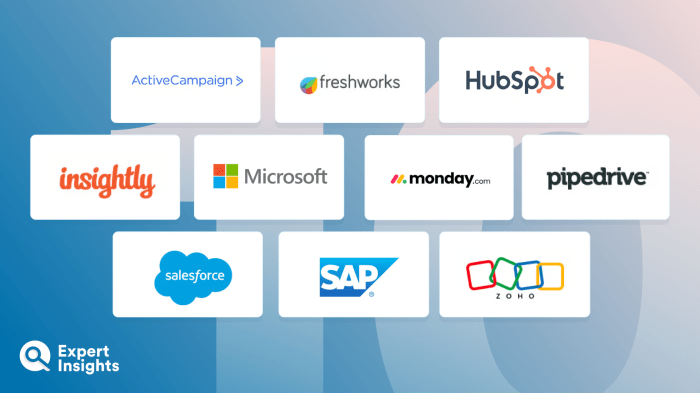In today’s competitive landscape, exceptional customer service is no longer a luxury; it’s a necessity. Businesses that prioritize customer satisfaction cultivate loyalty, boost brand reputation, and ultimately drive revenue growth. Central to achieving this is the implementation of robust Customer Relationship Management (CRM) software specifically designed for customer service. This comprehensive guide delves into the intricacies of CRM customer service software, exploring its features, benefits, selection process, and integration strategies.
We’ll also address frequently asked questions to help you make an informed decision.
Understanding CRM Customer Service Software: More Than Just Contact Management
CRM customer service software goes beyond simple contact management. It’s a powerful platform that streamlines interactions, centralizes customer data, and empowers your support team to provide efficient and personalized service. Key features include:
Core Features of Effective CRM Customer Service Software:
- Ticketing System: A structured system for managing customer inquiries, tracking their progress, and ensuring timely resolution. This often includes features like priority levels, automated routing, and SLA (Service Level Agreement) management.
- Knowledge Base: A centralized repository of information, including FAQs, troubleshooting guides, and product manuals, empowering customers to find answers independently and reducing the burden on your support team. This self-service component is crucial for improving customer satisfaction and efficiency.
- Live Chat: Provides instant communication with customers, offering real-time support and resolving issues quickly. Integration with the CRM ensures seamless context transfer and complete customer history access.
- Email Management: Efficiently handles customer emails, enabling automated responses, prioritized inbox management, and tracking of email interactions. This ensures no email falls through the cracks.
- Call Center Integration: Seamless integration with phone systems, providing agents with access to complete customer profiles during calls, enhancing personalization and efficiency. Features like call recording and call monitoring are often included.
- Social Media Integration: Monitors and responds to customer inquiries across various social media platforms, providing a unified view of customer interactions. This allows for proactive issue resolution and brand reputation management.
- Reporting and Analytics: Provides valuable insights into customer service performance, including key metrics like resolution time, customer satisfaction (CSAT), and agent productivity. This data-driven approach helps identify areas for improvement and optimize processes.
- Customer Segmentation: Allows you to segment your customer base based on various criteria, enabling targeted communication and personalized support. This improves customer engagement and loyalty.
- Workflow Automation: Automates repetitive tasks such as assigning tickets, sending follow-up emails, and escalating issues, freeing up agents to focus on complex problems and improving overall efficiency. This often involves using features like macros and automated workflows.
Benefits of Implementing CRM Customer Service Software
The advantages of adopting CRM customer service software are numerous and impactful. Here are some key benefits:
- Improved Customer Satisfaction: Faster response times, personalized interactions, and proactive support lead to happier customers.
- Increased Efficiency and Productivity: Automation, streamlined workflows, and centralized information empower agents to resolve issues more quickly and efficiently.
- Reduced Operational Costs: Automation reduces the need for manual processes, while improved efficiency minimizes the cost per interaction.
- Enhanced Team Collaboration: Centralized information and communication tools improve collaboration among support agents and other departments.
- Better Data-Driven Decision Making: Comprehensive reporting and analytics provide insights into customer behavior and service performance, enabling data-driven improvements.
- Improved First Contact Resolution (FCR): Faster issue resolution and access to comprehensive customer information increase the likelihood of resolving issues on the first contact.
- Stronger Customer Relationships: Personalized interactions and proactive support foster stronger customer relationships and loyalty.
- Scalability and Flexibility: CRM systems can adapt to your business’s growth, easily scaling to accommodate increasing customer volume and evolving needs.
Choosing the Right CRM Customer Service Software: Key Considerations
Selecting the appropriate CRM customer service software requires careful consideration of several factors:

Source: imimg.com
- Business Size and Needs: Choose a system that aligns with your current and future needs. Smaller businesses may benefit from simpler, more affordable options, while larger enterprises may require more sophisticated, scalable solutions.
- Budget: CRM software comes in a range of price points. Consider your budget and weigh it against the features and benefits offered by different systems.
- Integration Capabilities: Ensure the CRM integrates seamlessly with your existing systems, such as email platforms, phone systems, and other business applications. This prevents data silos and ensures a unified view of the customer.
- User-Friendliness: The system should be intuitive and easy to use for both agents and administrators. Consider ease of navigation, training requirements, and overall user experience.
- Scalability and Flexibility: Choose a system that can adapt to your business’s growth and evolving needs. Consider features like customizability and the ability to add users and functionalities as your business expands.
- Customer Support and Training: Select a vendor that provides excellent customer support and comprehensive training resources. This ensures a smooth implementation and ongoing support.
- Security and Compliance: Ensure the CRM software meets your security and compliance requirements, protecting sensitive customer data.
Integrating CRM Customer Service Software: A Seamless Transition
Successful CRM implementation requires careful planning and execution. Key steps include:
- Data Migration: Transferring existing customer data into the new CRM system accurately and efficiently.
- User Training: Providing comprehensive training to your support team on how to use the new system effectively.
- Process Optimization: Reviewing and optimizing your customer service processes to align with the CRM’s capabilities.
- Ongoing Monitoring and Optimization: Continuously monitoring the system’s performance and making adjustments as needed to maximize efficiency and effectiveness.
Frequently Asked Questions (FAQ)
- Q: What is the cost of CRM customer service software? A: Costs vary significantly depending on the features, vendor, and number of users. Some offer tiered pricing plans, while others charge per user per month.
- Q: How long does it take to implement CRM customer service software? A: Implementation time depends on the complexity of the system and the size of your business. It can range from a few weeks to several months.
- Q: What are the key performance indicators (KPIs) for CRM customer service software? A: Key KPIs include average handling time (AHT), first contact resolution (FCR), customer satisfaction (CSAT), Net Promoter Score (NPS), and agent productivity.
- Q: Can CRM customer service software integrate with other business applications? A: Yes, most modern CRM systems offer robust integration capabilities with various applications, including email platforms, phone systems, marketing automation tools, and more.
- Q: What are the benefits of cloud-based CRM customer service software? A: Cloud-based systems offer scalability, accessibility, and reduced IT infrastructure costs. They also provide automatic updates and enhanced security.
- Q: How can I choose the right CRM for my business? A: Consider your business size, budget, required features, integration needs, and user-friendliness. Research different vendors and request demos to compare options.
Conclusion: Empowering Your Customer Service Team for Success
Implementing CRM customer service software is a strategic investment that can significantly improve your customer service operations, enhance customer satisfaction, and drive business growth. By carefully selecting the right system and implementing it effectively, you can empower your team to deliver exceptional service and build lasting customer relationships. Remember to leverage the data and analytics provided by your CRM to continuously optimize your processes and adapt to the evolving needs of your customers.
References
For further reading and research, consider exploring resources from reputable sources such as:
Call to Action: Transform Your Customer Service Today!
Ready to elevate your customer service to the next level? Contact us today for a free consultation and discover how the right CRM customer service software can transform your business.
Frequently Asked Questions
What are the key features of CRM customer service software?

Source: gaebler.com
Key features often include ticketing systems, knowledge bases, live chat integration, email management tools, reporting and analytics dashboards, and customer interaction history tracking.
How much does CRM customer service software cost?
Pricing varies greatly depending on the vendor, features, and number of users. Options range from affordable cloud-based solutions to more expensive enterprise-level systems.
How long does it take to implement CRM customer service software?
Implementation timelines vary but generally range from a few weeks to several months, depending on the complexity of the system and the size of the business.
What are the potential challenges of implementing CRM customer service software?

Source: expertinsights.com
Challenges include data migration, user adoption, integration with existing systems, and the need for ongoing training and support.
Can CRM customer service software integrate with other business applications?
Yes, many CRM systems offer integrations with other applications, such as marketing automation platforms, e-commerce systems, and accounting software.
